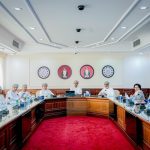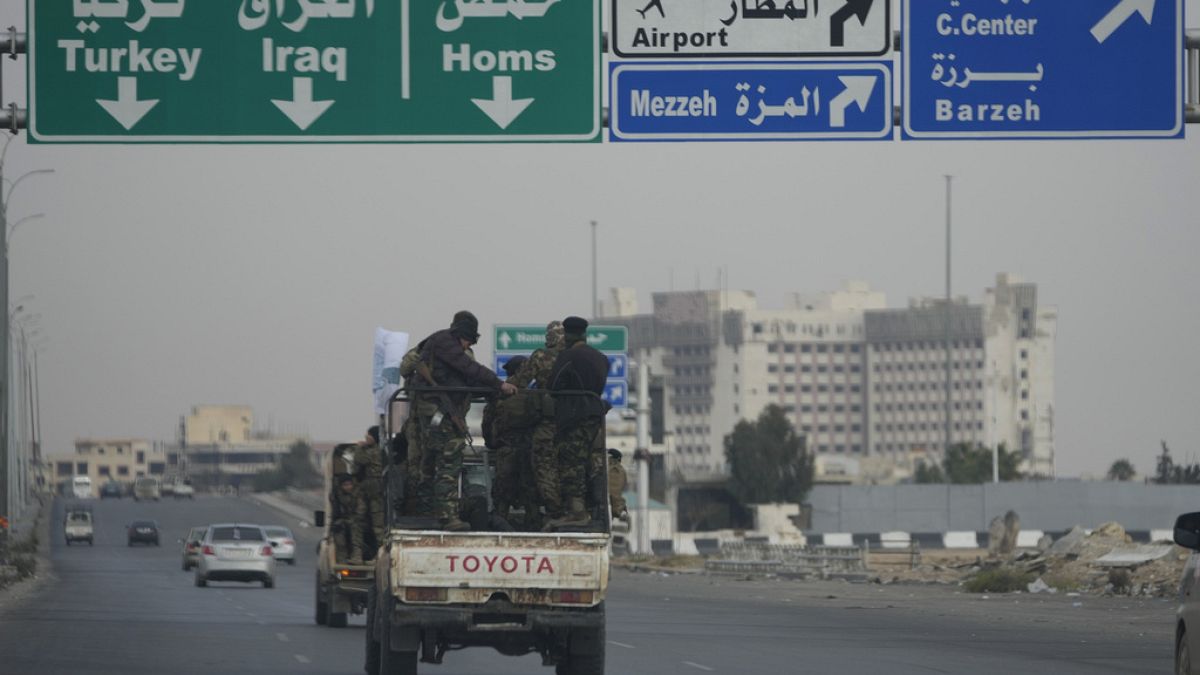The arrest of Mohammed Kanjou al-Hassan, the former head of the military judiciary under Bashar al-Assad’s regime, has led to deadly clashes in Syria. Al-Hassan is accused of issuing thousands of death sentences in Syria’s infamous Sednaya prison during his time in power. The UK-based Syrian Observatory for Human Rights reported that al-Hassan was arrested alongside 20 others after clashes erupted in the coastal province of Tartus. The violence resulted in the deaths of 14 government forces as loyalists of al-Assad sought to protect the former official. Al-Hassan’s arrest marks a significant step towards holding former members of the al-Assad regime accountable for human rights abuses.
Reports indicate that al-Hassan was responsible for leading the Syrian military court from 2011 to 2014, during the early years of the civil war in Syria. He later rose to become the head of the country’s military justice system. Al-Hassan was sanctioned by the UK government in 2023 for his role in repressing the civilian population in Syria. The Association of Prisoners and Missing Persons of Sednaya Prison (ADMSP) stated that al-Hassan sentenced thousands of people to death and extorted millions of euros from their relatives in exchange for information about their loved ones. The National Coalition of Syrian Revolutionary and Opposition Forces welcomed al-Hassan’s arrest as a step towards investigating crimes committed under al-Assad’s rule.
The arrest of al-Hassan by rebel fighters led by Hayat Tahrir al-Sham (HTS) indicates a shift towards accountability for former members of the al-Assad regime in Syria. HTS has promised to create a pluralist system of governance in the country, which is home to multiple religious communities. However, concerns have been raised about the group’s fundamentalist Islamist ideology and the potential for minority communities, such as Christians, Druse, and Alawites, to face prosecution. The interim Ministry of Information recently announced a ban on the publication of content with sectarian character in an effort to prevent further division in the country.
International organizations have called for the establishment of mechanisms of accountability in Syria, where a new judiciary has not yet been organized by rebel fighters. HTS may face challenges in implementing peaceful governance, as evidenced by recent protests and deadly clashes in various parts of the country. Members of al-Assad’s minority Alawite community have staged protests in response to a video allegedly showing an Alawite shrine set alight, while protests erupted in Damascus over the burning of a Christmas tree, sparking fears of sectarian conflict. HTS has pledged to protect minority communities in Syria, but their actions will be closely monitored for adherence to their promises and commitment to building a just and inclusive system of governance.
The arrest of Mohammed Kanjou al-Hassan represents a significant development in the pursuit of justice for human rights abuses committed under Bashar al-Assad’s regime in Syria. Al-Hassan’s alleged role in issuing death sentences and extorting money from prisoners’ families highlights the need for accountability and transparency in the country’s justice system. The actions of rebel fighters, led by Hayat Tahrir al-Sham, in pursuing former regime officials for their crimes demonstrate a commitment to holding perpetrators accountable and building a more equitable society in Syria. The international community will be watching closely as Syria navigates the challenges of implementing peaceful governance and ensuring the protection of all its citizens, regardless of their religious or ethnic backgrounds.
In conclusion, the arrest of Mohammed Kanjou al-Hassan is a significant step towards accountability for human rights abuses committed during Bashar al-Assad’s regime in Syria. The actions of rebel fighters in pursuing former regime officials, such as al-Hassan, demonstrate a commitment to justice and transparency in the country’s justice system. While challenges remain in implementing peaceful governance and protecting minority communities, the international community must continue to support efforts to build a more just and inclusive society in Syria. By holding perpetrators accountable and ensuring the protection of all citizens, regardless of their background, Syria can begin to heal from the wounds of its past and build a more equitable future for all its people.











